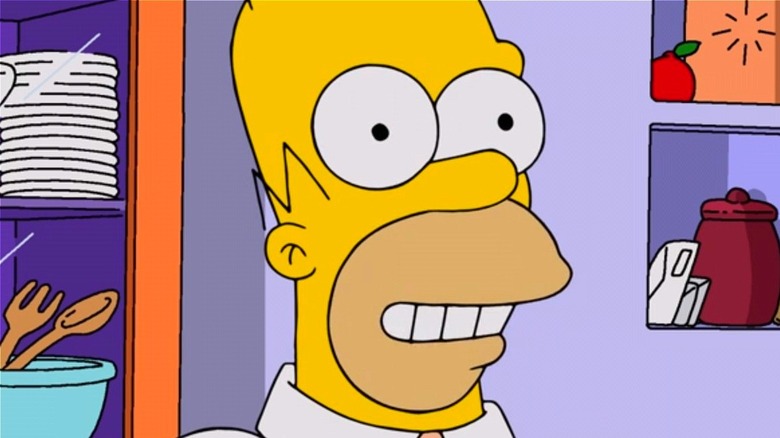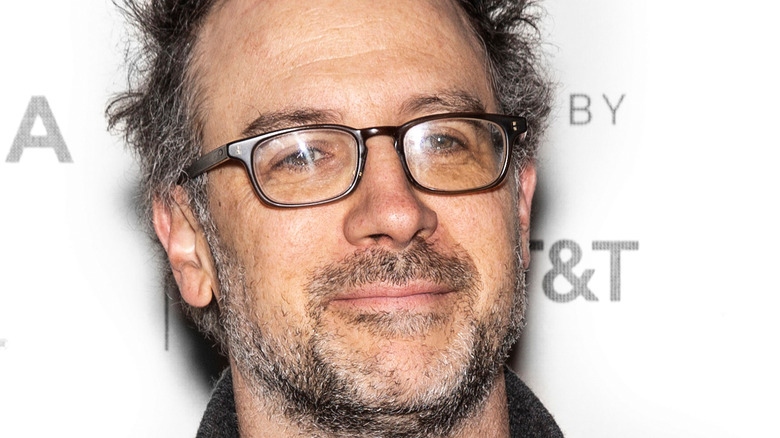The Simpsons' Co-Showrunner Reveals The Only Thing That's Canon
When it comes to long-running film or television series, fans can be relentless, often fixating on details that seem to contradict the continuity of an established story. Fans of "The Big Bang Theory" have been extremely vocal about their disdain for the unfortunate way "Young Sheldon" changed Sheldon's father, George Sr., making him into a much more likable guy. But with shows like "The Simpsons," which has not only been airing over 30 years, but features an array of Halloween House of Horror and Christmas episodes, the idea of continuity gets a little murky.
In a "Simpsons” subreddit, u/ALoneyPlatypus asked, "What makes a Simpsons episode Canon?" The idea of what makes an episode canon or not is a subject that fans have a hard time agreeing on, but Redditor u/ItsABiscuit explained it best — in a "Doctor Who" sort of way — writing in part "they're all canon, it's just that Springfield exists in a weird state of quantum suspension where the passage of time, cause and effect and other phenomenon are wibbly-wobbly." While this is an interesting way to look at it, co-showrunner Matt Selman has a much simpler way of explaining "The Simpsons" canon.
Matt Selman thinks the only canon is the characters themselves
While discussing "The Simpsons" with Awards Radar, Matt Selman admitted that continuity and canon just aren't important to him in regards to "The Simpsons" universe. "The only real canon on the show is, the characters themselves don't change. Who they are, what they want, what matters to them, what they're scared of, what they're proud of," he said. "Who they love, you know, what their flaws, their strengths... you can't mess with that."
While other showrunners try their best to provide consistency in their storylines, "The Simpsons" is in an entirely different category than most long-running series. For Selman, the most important thing to him is that fans have some sort of reaction to the episode, even if it's disdain or indifference. So when something happens that alters canon, such as changing Marge's backstory forever, Selman would prefer for viewers to just focus on how they feel watching the show, instead of nitpicking a continuity error. Sounds like a key to longevity.

